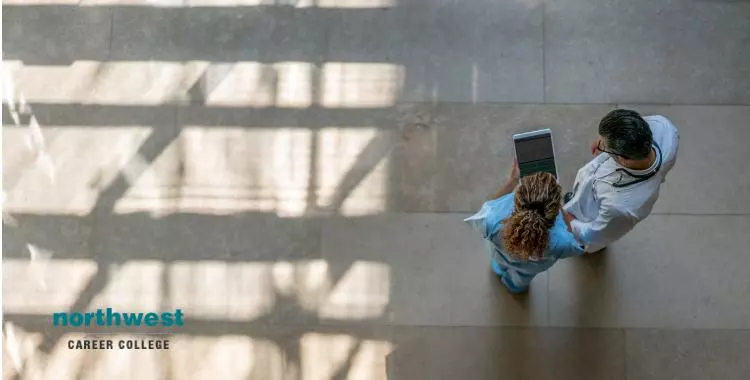Medical Technology: 5 More Amazing Advancements
- Medical Assistant
- March 11, 2024
- 3.1k views
- 4 min read

In last week’s article, we covered some of the amazing advancements in medical technology that making previously fatal diseases and conditions more survivable and returning function to body parts lost in accidents or to congenital issues.
Given how many truely fantastic new medical technologies are being researched, we’ll be expanding on that list in the article with five more amazing advancements in medical technology.
Table of Contents
Amazing Advancements in Medical Technology (Part 2)
Smart Inhalers
According to the Centers for Disease Control and Prevention (CDC), 1 in 13 people have asthma. This means more than 25 million Americans have asthma, which is 7.7 percent of adults and 8.4 percent of children. Asthma has been increasing since the early 1980s in all age, sex, and racial groups.
Each day, ten Americans die from asthma, and in 2017, 3,564 people died from asthma. Many of these deaths are avoidable with proper treatment and care. Inhalers are the main treatment option for asthma and if taken correctly, will be effective for 90% of patients.
However, in reality, research shows that only about 50% of patients have their condition under control and as many as 94% don’t use inhalers properly.
Enter the Bluetooth enabled smart inhaler. This tiny device attaches to the inhaler and records the time, date, and whether the dose was correctly delivered. This information is then sent to smartphone app and can be used by both doctors and asthma sufferers.
Clinical trials showed that using the smart inhaler device used less reliever medicine and had more reliever-free days.
Artificial Organs
Expanding on the 3D printing technologies discussed in our last article, bio-printing is the next iteration of printable medical advancements, allowing labs to print replacement organs for transplants and sheets of skin for burn victims.
The technology is still in its infancy, but scientists have, so far, been able to create blood vessels, synthetic ovaries, and even a pancreas. These organs are programmed with the recipient’s DNA and are grown to full size within the body to prevent them from being rejected.
Telehealth
As with most services, more and more patients are looking for a digitally-led option for their healthcare. Recent surveys have suggested that up to 60% of customers prefer would prefer a digital healthcare option alongside traditional medical practice visits.
This has led to the development of highly-personalized mobile apps that allow patients to speak virtually with doctors and other medical experts to receive immediate diagnosis and pharmaceutical advice.
With the US medical system already struggling with the demands of an aging population, telehealth allows doctors a low-cost but effective way to communicate with patients without them needing to leave their homes. The popularity of this option means the global telemedicine market is expected to be worth $113.1 billion by 2025.
Wireless Brain Sensors
There are a variety of reasons that doctors and surgeons would wish to place monitoring sensors on the brain, however, the risks of repeated intracranial surgery, to both insert and remove the sensor, are such that this often isn’t a viable option.
Scientists in the UK and the US are in the process of developing a wireless, biodegradable sensor that can be injected into the skull with minimally invasive surgery. This sensor can then be used to monitor heat, pressure, and blood flow for around a month before it harmlessly dissolves and is absorbed by the brain.
CRISPR
Clustered Regularly Interspaced Short Palindromic Repeats (CRISPR) is the latest iteration of complex gene editing to show real promise in overcoming a huge range of diseases and adverse medical conditions.
Harnessing the natural mechanisms of the immune systems of bacterium cells of invading viruses, CRISPR can be used to remove faulty or infected sections of DNA, potentially curing a range of maladies from HIV to a host of common birth defects.
Start Your Career In Medical Assistant Today!
Here at Northwest Career College, we have a student-focused attitude that prioritizes giving our graduates the training and skillset they’ll need to excel as medical assistants. Our established and seasoned instructors work with you, teaching you every aspect of Medical Assistant.
If you’d like to learn more about what our medical assistant course can offer you, call one of our enrollment specialists at (702) 403-1592 today. We provide flexible learning, with online and on-campus morning, afternoon and night classes to accommodate your Las Vegas work and family schedule. Once you’ve graduated, our dedicated and experienced Career Services team will work with you to help you find the best employment opportunities in Las Vegas. Call us now on (702) 403-1592 to start your journey!



